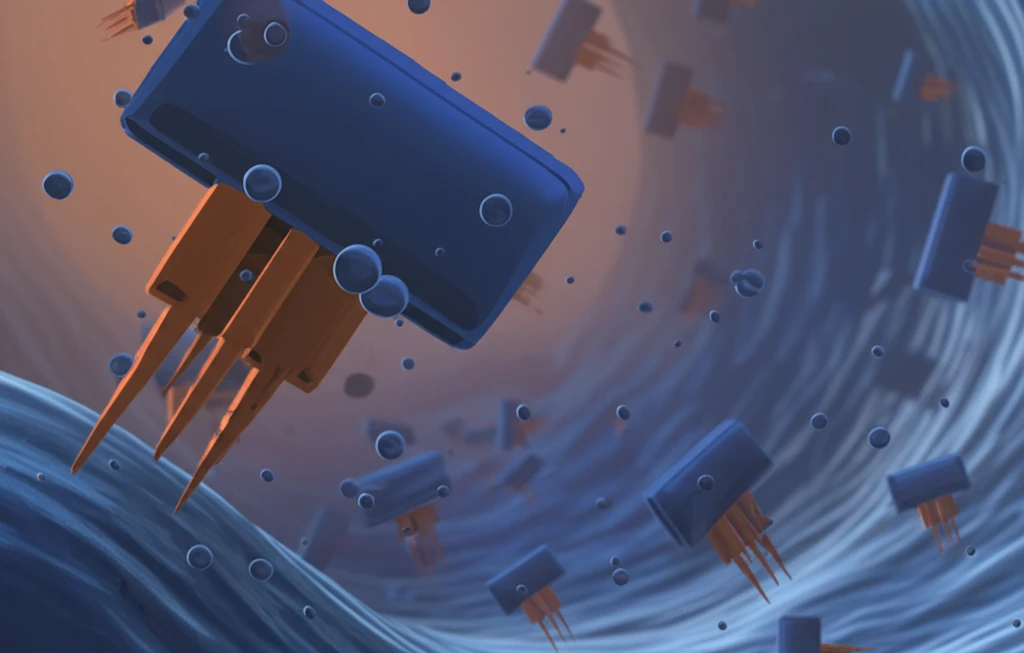
Flow State Achieved: How Ultra-Precise Flow Sensors Are Changing Medical Tech
"Discover the groundbreaking micro-sensor technology enabling unprecedented accuracy in medical devices and revolutionizing treatments."
In the world of medical technology, precision is paramount. Whether it's delivering life-saving drugs or conducting delicate diagnostic procedures, the ability to accurately measure and control fluid flow is crucial. Recent advancements in flow sensor technology are making waves, offering new possibilities for ultra-precise measurements in medical devices.
Traditional methods often fall short when it comes to the tiny scales required in microfluidics and advanced medical treatments. Imagine trying to measure the minuscule flow rates needed for targeted drug delivery or the precision required in lab-on-a-chip diagnostics. These challenges demand innovative solutions, and that's precisely what researchers are developing.
One promising approach involves the use of calorimetric flow sensors that employ electrochemical impedance (EI) to sense flow-mediated heat transfer. This technology, developed by researchers at the University of Southern California, offers a unique combination of biocompatibility, flexibility, and high precision, making it ideal for a range of medical applications.
The Science Behind Electrochemical Impedance Flow Sensors

At the heart of this technology lies the principle of electrochemical impedance. Essentially, this involves measuring the electrical resistance of a solution between two electrodes. The key is that the solution's resistance is highly sensitive to temperature changes. By carefully controlling and measuring temperature variations, it's possible to infer the flow rate of the fluid.
- A central heater element generates heat pulses.
- Electrodes placed upstream and downstream of the heater measure the impedance (resistance) of the fluid.
- Flowing fluid carries heat away from the heater, creating a temperature difference between the upstream and downstream electrodes.
- By measuring the difference in impedance dips, the flow rate can be precisely determined.
The Future of Flow Sensing in Medicine
This advancement in flow sensor technology holds significant promise for a variety of medical applications. Imagine more precise drug delivery systems, leading to improved treatment outcomes and reduced side effects. Envision lab-on-a-chip devices capable of performing complex diagnostics with unprecedented accuracy. The possibilities are vast, and ongoing research is paving the way for these innovations to become a reality. Furthermore, the development of multiple electrode pairs can improve robustness against biofouling for chronic in-vivo implementations such as in hydrocephalus shunts.
